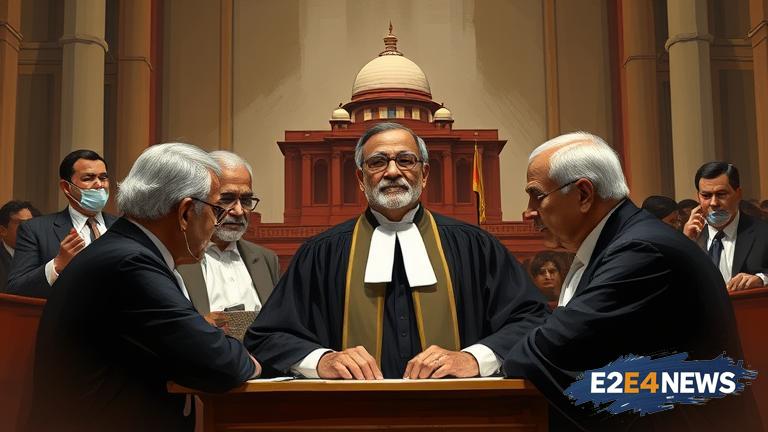In a significant development, Supreme Court Justice MM Sundresh has recused himself from hearing the bail plea of activist Surendra Gadling, who is accused in the Bhima Koregaon violence case. The case has been highly publicized and has sparked widespread debate about the use of sedition laws in India. Surendra Gadling, a human rights activist, was arrested in 2018 for his alleged involvement in the Bhima Koregaon violence, which occurred on January 1, 2018. The violence had broken out during an event to commemorate the 200th anniversary of the Battle of Bhima Koregaon, a historic battle fought between the Peshwa army and the British East India Company. The event had turned violent, resulting in the death of one person and injuries to several others. Gadling, along with several other activists, was accused of having links with Maoist organizations and of inciting violence during the event. The accused have denied all charges, claiming that they are being targeted for their activism and advocacy for human rights. The bail plea of Gadling was scheduled to be heard by a bench headed by Justice MM Sundresh, but the judge recused himself from the case, citing personal reasons. The recusal has sparked speculation about the reasons behind it, with some speculating that it may be due to the high-profile nature of the case. The Bhima Koregaon case has been widely criticized by human rights organizations and activists, who claim that the accused are being unfairly targeted and that the charges against them are baseless. The case has also sparked a wider debate about the use of sedition laws in India, with many arguing that they are being used to silence dissent and stifle free speech. The Indian government has defended the use of sedition laws, claiming that they are necessary to maintain law and order and to prevent anti-national activities. However, critics argue that the laws are being used to target activists, journalists, and intellectuals who are critical of the government. The recusal of Justice MM Sundresh from the case has added a new twist to the saga, with many waiting to see how the case will unfold. The Supreme Court has directed the matter to be listed before another bench, which will hear the bail plea of Gadling. The case is being closely watched by human rights organizations and activists, who are hoping that the court will grant bail to Gadling and the other accused. The case has also sparked a wider debate about the role of the judiciary in protecting human rights and ensuring that the rule of law is upheld. The Indian judiciary has been praised for its independence and impartiality, but the Bhima Koregaon case has raised questions about the extent to which the judiciary is able to withstand political pressure. The case is a test of the Indian judiciary’s commitment to upholding human rights and the rule of law, and its outcome will be closely watched by human rights organizations and activists around the world. The use of sedition laws in India has been widely criticized, and the Bhima Koregaon case has highlighted the need for reform. The Indian government has been accused of using sedition laws to silence dissent and stifle free speech, and the case has sparked a wider debate about the need for greater protections for human rights and freedom of speech. The recusal of Justice MM Sundresh from the case has added a new layer of complexity to the saga, and it remains to be seen how the case will unfold. The Supreme Court’s decision to grant bail to Gadling and the other accused will be a significant test of its commitment to upholding human rights and the rule of law.
